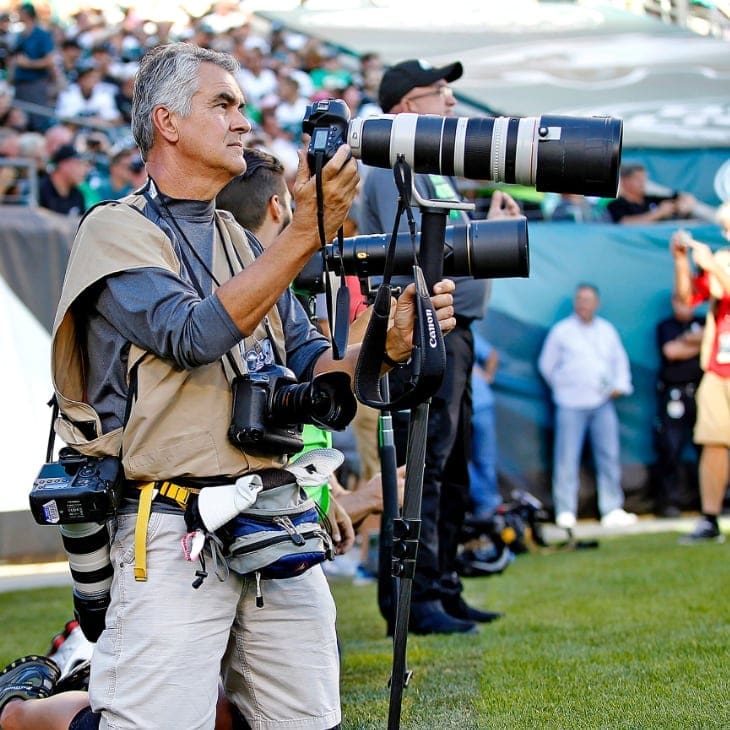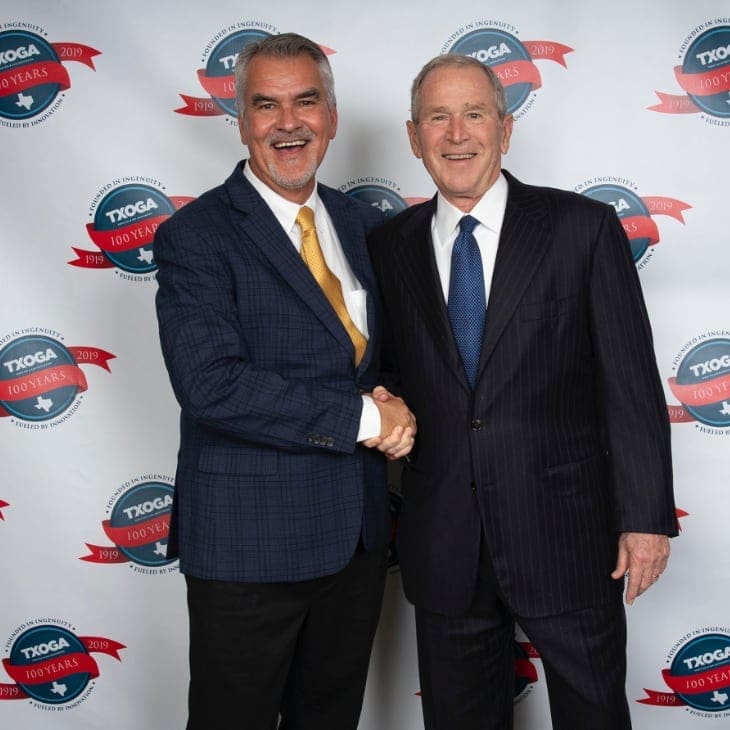Paul Moseley remembers the day he learned he had prostate cancer in November 2013. “I don’t scare easily, but I was shook,” he admits. “You think you have this big distance ahead of you, and it turns out it could be really short.”
The long-time Fort Worth Star-Telegram news photographer, now retired, is no stranger to stress. “I’ve seen everything you can see—many times over. When something is tough, I just put my head down and solve it,” he says.
It was right before Thanksgiving, so Moseley and his wife, Pixie, decided not to tell anyone, including their two daughters, about his diagnosis until after the holidays. “It was a great Thanksgiving and a great Christmas,” he says. “Of course, I’m ‘Mr. Paint the Worst Possible Picture’ even though I say I’m not afraid. I’m a journalist. I’m the biggest preparer of all, and I started right then. I immediately contacted my attorney and made sure all the wills were done and all the bills were paid. I just got in my defense mode.”
Taking the First Step
In early January, Moseley met with Richard Bevan-Thomas, M.D., a prostate cancer specialist and robotic surgeon.
“I was kind of in a fog, but he told me about all my options, explained the biopsy process and all the things that lead to diagnosing and charting how serious the cancer is,” he recalls. “That guy is amazing—for a lot of different reasons. Men are men. We’re tough, but we’re a bunch of cowards, you know. Handling guys is kind of tricky sometimes. Some of us are real tough and some fall apart. He has to assess that in an instant.
“He wasn’t cocky, he was confident. ‘This is what we’re going to do. This is why we’re going to do it. These are the options you have and why each one might be good or bad.’ Just talking to him built my confidence.”
Moseley also appreciated the way Dr. Bevan-Thomas talked to Pixie.
“He was a totally different person with my wife. He was very gentle and caring. He said, ‘Don’t worry, I’m going to take care of him. This is going to work out.’ She needed to be handled with kid gloves and he did. She loves him.”
Getting a Second Opinion
Moseley was impressed by Dr. Bevan-Thomas’ support, too. “I said, I don’t want to offend you, but I’d like to have a second opinion. Immediately he said, ‘Absolutely. If you want to go to MD Anderson, I know those people. I was there. I’ll call them for you.’ He set it all up for me.”
At MD Anderson, Moseley explored all of his treatment options—surgery, radiation and proton therapy. Although he found the physicians and facilities impressive, he reached a decision when one of his meetings took an unexpected turn.
“One of the doctors rolled his chair back and said, ‘I know Dr. Bevan-Thomas, and unless you really want to move to Houston, I think you’re in great hands.’ That was good enough for me.”
Making a Decision

Because his cancer was still encapsulated in the prostate with a few suspicious spots near the perimeter, Moseley elected to have a robot-assisted radical laparoscopic prostatectomy. He had done his research about the daVinci surgical system used during the procedure, and thought it was the right treatment option for him.
“What Dr. BT told me about other treatment processes actually helped me make my decision. He said, ‘I’ll be using a robot. It’s an amazing machine. If you have radiation or the seeds, they kill tissue and create scar tissue. Later on, if your cancer recurs and I have to take your prostate out, it will be harder because scar tissue is harder to cut. That area is delicate and demands tremendous precision because all of your sexual function and everything is right there.’ His explanation just made total sense to me.”
As it turned out, Moseley was a good candidate for surgery because he had taken some proactive steps in his mid-fifties when his family doctor discovered he was prediabetic. “I had gotten out of shape with work and swinging into McDonald’s and Starbucks,” he admits. “I was 220 pounds, so I really got on it and immediately lost 40 pounds. I started racing my bicycle again and getting fit.”
On April 4, 2014, Moseley went into surgery a trim 180 pounds. The procedure went smoothly and he was able to go home the next day. He is still amazed by his speedy recovery.
“The robotic incisions are small. They’re super glued shut. How easy is that? Afterward, I felt like I had just done too many sit ups.”
Moseley was a little surprised to see a tube coming out of his bladder. “Dr. BT explained he put the tube in so I didn’t need a catheter. I had that in for a week, came into the office one day, they pulled it out and I was back to my normal life within a week. The ease of recovery was just incredible. I couldn’t believe it. I had to stop myself from being too active because it was too easy.”
Life on the Survivor Side

More than six years after his surgery, Moseley still feels incredibly fortunate.
“I feel pretty darn good. My PSA is zero. Everything works just like before. It’s amazing,” he says. “Now I know my choices were spot on, but I remember being on the other side, when the choices are in front of you. It was a profound experience for me. The mechanics of it—the surgery and diagnosis and going through all that is one thing, but it’s the person, the doctor. You’re scared and you’re meeting a stranger. It’s different if you’re buying car parts, but this person is probably going to operate on you—probably going to save your life. It’s the greatest bonding experience of your life.”
Although Moseley retired from the Fort Worth Star-Telegram in August 2018, his legacy with the newspaper continues. To commemorate their 100th Anniversary in 2019, the NFL chose a snap by Moseley as one of the greatest 100 photos in NFL history—a huge honor. The photo captured legendary Dallas Cowboys head coach Tom Landry. Now Moseley is enjoying a second act as a freelance photographer. So far, he’s served as personal photographer for President George W. Bush, covered events with President Bill Clinton and works with a variety of corporate clients.
Despite the political leaders, celebrities and sports legends who pop in and out of Moseley’s world, there’s one guy who doesn’t make headlines he holds in very high regard.
“I hate to apply too much hero status to him. I know Dr. BT probably fears it sometimes, but he’s just going to have to suffer through it. He is my hero. He saved my life. It’s quite a gift. I’ll never take it for granted.”
If you’ve been diagnosed with prostate cancer and would like to know more about your treatment options, please contact USMD Prostate Cancer Center online or at 1-888-PROSTATE (1-888-776-7828) or schedule an online appointment.


